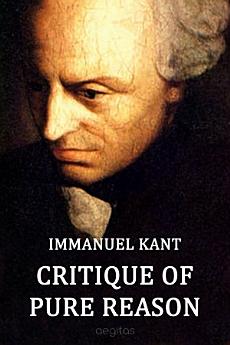Critique of Pure Reason
About this ebook
First published in 1781, Kant investigates how our minds shape experiences, introducing the concept that space and time are not properties of the external world, but forms of human intuition. He distinguishes between what we can know (“phenomena”) and what lies beyond our perception (“noumena”), challenging prior metaphysics and launching a “Copernican Revolution” in philosophy. Through rigorous argumentation, Kant examines the boundaries between reason, science, and metaphysics, revealing both the powers and limits of human cognition. Essential for anyone interested in philosophy, science, or the structure of thought, “Critique of Pure Reason” remains a must-read classic.
Discover Kant’s masterpiece and engage with the questions that continue to shape philosophical and intellectual debates—read it now!
About the author
Immanuel Kant was a German philosopher who is a central figure in modern philosophy. Kant argues that the human mind creates the structure of human experience, that reason is the source of morality, that aesthetics arises from a faculty of disinterested judgment, that space and time are forms of human sensibility, and that the world as it is "in-itself" is independent of humanity's concepts of it. Kant took himself to have effected a "Copernican revolution" in philosophy, akin to Copernicus' reversal of the age-old belief that the sun revolves around the earth. Kant's beliefs continue to have a major influence on contemporary philosophy, especially the fields of metaphysics, epistemology,








